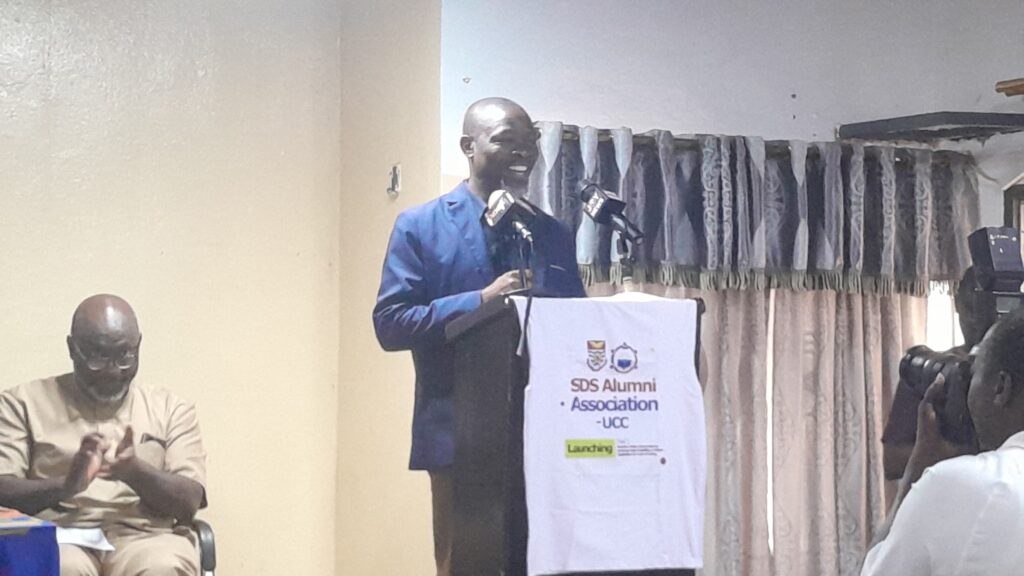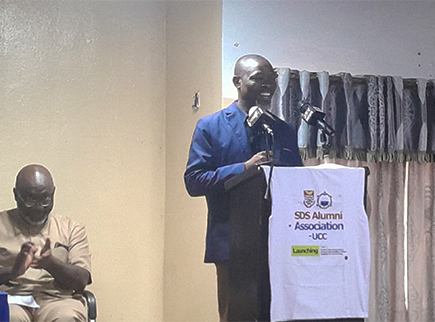Dr Philip Abradu-Otoo, the Director of Research at the Bank of Ghana (BoG), has underscored the need for urgent structural reforms to address bottlenecks in the Ghanaian economy to build resilience for the country’s currency.
He highlighted the dire impact of excessive volatility of the currency on inflation, pricing behaviour and the cost of living, urging practical interventions that would boost the real economy, promote more export activities and build more foreign reserves.
He made the remarks at the official launch of the University of Cape Coast’s (UCC) School for Development Studies Alumni Association in Cape Coast.
The launch coincided with a roundtable discussion by the Association on the theme: “Monetary Policy Responses to Exchange Rate Volatility in Ghana: Implications for Cost of Living.”
Dr Abradu-Otoo stressed that the structure of Ghana’s economy was a major determinant of the exchange rate, indicating that import-dependent countries were more susceptible to currency depreciation and high cost of living.
He explained that businesses often shifted extra costs induced by the currency depreciation to consumers, pushing the cost of goods and services up.

“The central bank is mandated to stabilise inflation, not necessarily the exchange rate. However, excessive volatility, whether appreciation or depreciation, creates uncertainty that affects investment, competitiveness, and cost of living,” he said.
Prof Samuel Kwaku Agyei, the Dean of the School of Business, corroborating the impact of exchange rate instability on livelihoods, urged swift and measured monetary policy responses to mitigate inflation.
He said exchange rate instability invariably contributed to inflationary pressures, affecting prices of essential goods such as food, transport, and utilities.
“In Ghana, even a tomato seller attributes price hikes to the dollar. This shows how deeply exchange rate volatility trickles down to households,” he said.
Prof Agyei observed with concern that many businesses and traders had failed to reduce their prices in response to the recent appreciation of the cedi for which reason many consumers were not feeling the real impact of the transformation in their pockets.
“Market players must complement government efforts by ensuring that price reductions are reflected in the pockets of households,” he said.
Mr Stephen Adjei, the pioneering President of the Alumni Association, noted that the Association would be a network for mentorship, collaboration, and lifelong learning to harness the collective expertise of members to drive national development and support the university.
He maintained that alumni was an indispensable part of the university community whose professional experiences and expertise were needed to drive the progress of the school.
Among other interventions, the Association would raise funds for several development projects, lead digital innovation, and support postgraduate training, research, and capacity building for members and the school.
Mr Adjei entreated members to actively involve themselves in the development of the School for Development Studies.
“We must build a network that inspires, empowers, and elevates every member, making a tangible difference in society,” he stated.


https://shorturl.fm/FXL5u